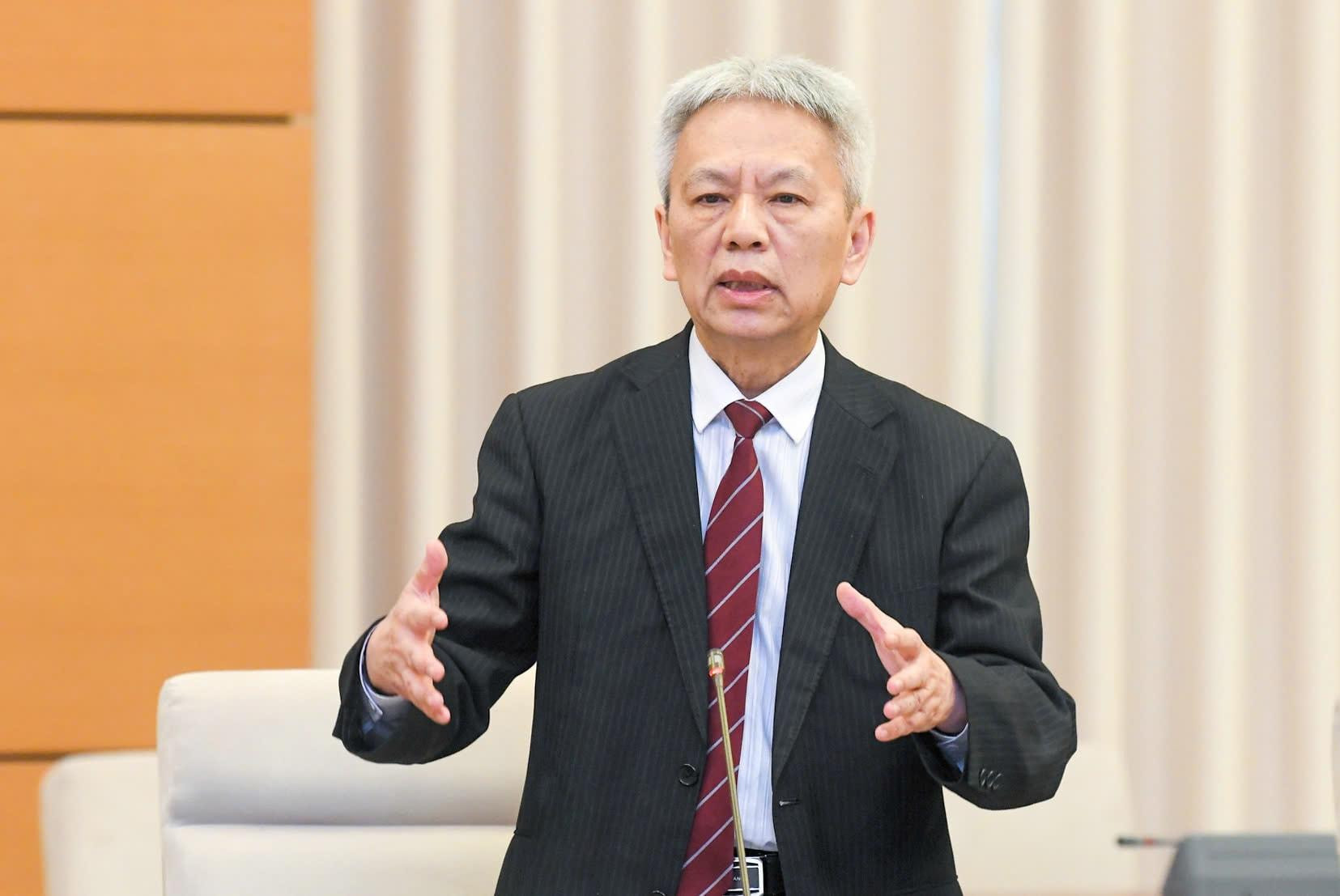General Secretary To Lam and the Party Central Committee have resolutely pursued a revolutionary streamlining of the political apparatus. VietNamNet presents a series of discussions with experts offering solutions for this revolution.
How do you evaluate the term 'revolution' emphasized repeatedly by General Secretary To Lam and the Central Committee in expressing their determination to reform the political system?
Nguyen Si Dung, Former Vice Chair of the National Assembly Office: When leaders refer to a revolution, it conveys a very strong and radical message. This streamlining of the political apparatus is not ordinary because a revolution is different from reform.
Revolution is fundamental, while reform addresses minor errors. General Secretary To Lam uses the term 'revolution' to call on the entire apparatus, society, and all levels of the population to achieve monumental goals. The Party, State, and Fatherland Front must all thoroughly embrace this spirit.
When merged, the apparatus will shrink and become interconnected rather than fragmented and isolated as it is now.

General Secretary To Lam clearly stated that the Party does not overreach or take on executive tasks. What, in your opinion, is required to achieve this goal?
Nguyen Si Dung: "The Party does not overreach," in my view, does not mean we are changing the model but rather institutionalizing and technocratizing the socialist model. That is its essence.
With clear demarcation, the Party decides on the major development directions. The National Assembly transforms these into laws and policies, while the Government implements them.
This model demands technocracy. While it is not fully democratic, this approach has enabled China's rapid development.
Thus, talented statesmen with the capacity and knowledge to design sound development strategies must be concentrated within the Party.
Streamlining the apparatus first requires identifying the causes of its cumbersomeness. Solutions must be proposed based on a thorough understanding of these causes, along with evidence demonstrating the effectiveness of these solutions.
Next, the impact of the solutions must be evaluated, including their socio-economic implications, costs, and outcomes. This is the first step in the policy process.
What is your opinion on the proposal to merge certain ministries, such as the Ministry of Construction and the Ministry of Transport?
Nguyen Si Dung: Conceptually, merging the two ministries is entirely reasonable because transportation and construction both involve infrastructure development.
When merged, the apparatus will shrink and become interconnected rather than fragmented and isolated as it is now.
In developed countries, building metro systems and roads is straightforward because transportation comes first, followed by urban development. Once infrastructure is completed, it significantly raises land value, generating revenue to fund metros and roads.
In our country, development has taken the opposite route and is mired in difficulties because transportation has not preceded construction. People build houses and urban areas first and then consider metro systems, which become infeasible due to skyrocketing land prices and compensation costs.
What about merging the Ministry of Planning and Investment with the Ministry of Finance?
Nguyen Si Dung: This merger is relatively reasonable, though it has its complexities. For a long time, the planning and investment sector has been responsible for public investment projects but lacked control over funds. Meanwhile, the finance sector handles both revenue collection and disbursements for public investment, which relies on budgetary funds.
Only when resources are fully under control can investment be effectively managed. The current mechanism between the two ministries has led to prolonged, incomplete projects due to separate approval for investments and available funds. Merging them would create a single entity that knows the resources available for investment, avoiding scenarios of too many projects and insufficient funding.
However, my concern lies in strategic development planning, forecasting, and national visioning, which remain essential tasks of the Ministry of Planning and Investment but may not align with the functions of the new ministry.
This responsibility must now be addressed. I believe forecasting capabilities, policy planning, and economic sector development- such as high-tech industries - should be transferred to the Central Economic Commission.
I understand that the Party aims to strengthen the Central Economic Commission rather than dissolve or merge it. In the current context, the ability to forecast, plan, and supervise must reside with the Party. The issue is that where power lies, capacity must follow.
What, in your opinion, is needed to attract talent to the state apparatus?
Nguyen Si Dung: Traditionally, we perceive ministers as commanders of their respective sectors. This implies that they oversee everything from planning to execution, which everyone realizes is too much for a single individual to handle.
Moreover, management is a technical job, and as sectors have become increasingly interdisciplinary, their scope has expanded enormously, making it impossible for a minister to encompass everything.
Thus, there must be a clear distinction between political executive functions and public administration tasks. A minister functions as a political executive, differing from those performing public administration.
For instance, someone with very high approval ratings (100%) might not know how to manage the transportation system to prevent congestion. While they enjoy public trust, they lack the technical expertise for the role, which is not a political task.
If the head of a transportation bureau must also be a Party Secretary, it creates a situation where only individuals with political skills secure the position, while those with technical expertise but no political skills face significant obstacles.
Gaining approval requires political skills, while solving transportation problems demands technical expertise. These are distinct competencies. Currently, our system prioritizes political over technical qualifications.
Without technocrats and professionals in the state apparatus, achieving efficiency and effectiveness becomes extremely challenging.
In many countries, there is a "minister of state" position within ministries to manage technical work. This role does not necessarily require public appearances because it is not a political position.
As ministries are merged, I believe we should consider this position and related structures to ensure these individuals hold public power relatively independently from political roles.
Tu Giang - Lan Anh